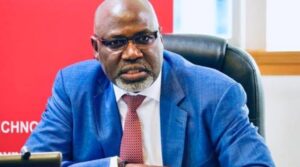President Bola Ahmed Tinubu has called on Nigerian universities to take the lead in driving national development through practical and sustainable research.
The president, who spoke through Professor Abdullahi Yusif Ribadu, said the Federal Government has invested over ₦200 billion this year through TETFund to support innovation in key sectors including agriculture, security, and education.
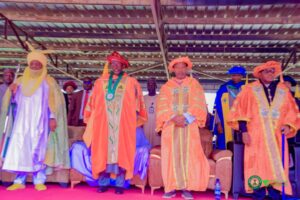
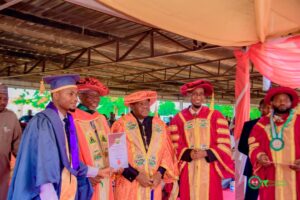
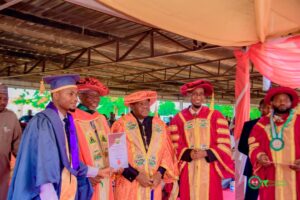

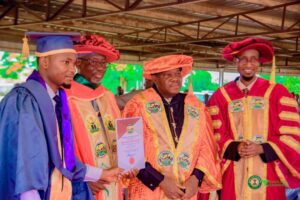
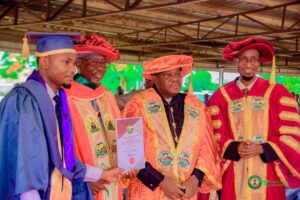



But despite this intervention, A 2023 report by the National Universities Commission (NUC) revealed that less than 15% of university research projects in Nigeria are adopted or implemented by industries or government agencies.
In practical terms, this means much of Nigeria’s academic work remains stuck in libraries, while the country continues to import food, struggle with youth unemployment, and battle a deepening insecurity crisis.
To address this, The president said universities must go beyond theory and offer real-world solutions to challenges such as food insecurity, terrorism, and graduate unemployment.
He explained that despite having over 260 universities, only a small fraction of research outputs in Nigeria are applied in solving real problems.
According to the National Research Fund, in 2024 alone, over 500 research proposals were funded across Nigerian universities, targeting national priorities.
But experts say funding alone is not enough.
In Jigawa State, efforts are underway to change that narrative, as the government is partnering with the Federal University Dutse on agricultural research to help small holder farmers increase yields, adapt to climate change, and reduce post-harvest losses.
The state, where over 80% of the population depends on farming, suffers from low mechanisation, limited irrigation, and youth migration due to rural unemployment.
Governor Umar Namadi says the collaboration with the university is part of a broader push to modernise agriculture and boost food production across the state.
Experts say failure to link research to development comes at a cost.
Youth unemployment remains at 33%, food inflation has crossed 40%, and insecurity continues to thrive in rural communities.
With better coordination between academia and government, many believe universities could help shape policies, improve livelihoods, and drive economic reform.
As Nigeria navigates multiple crises, the role of research and innovation cannot be ignored.


